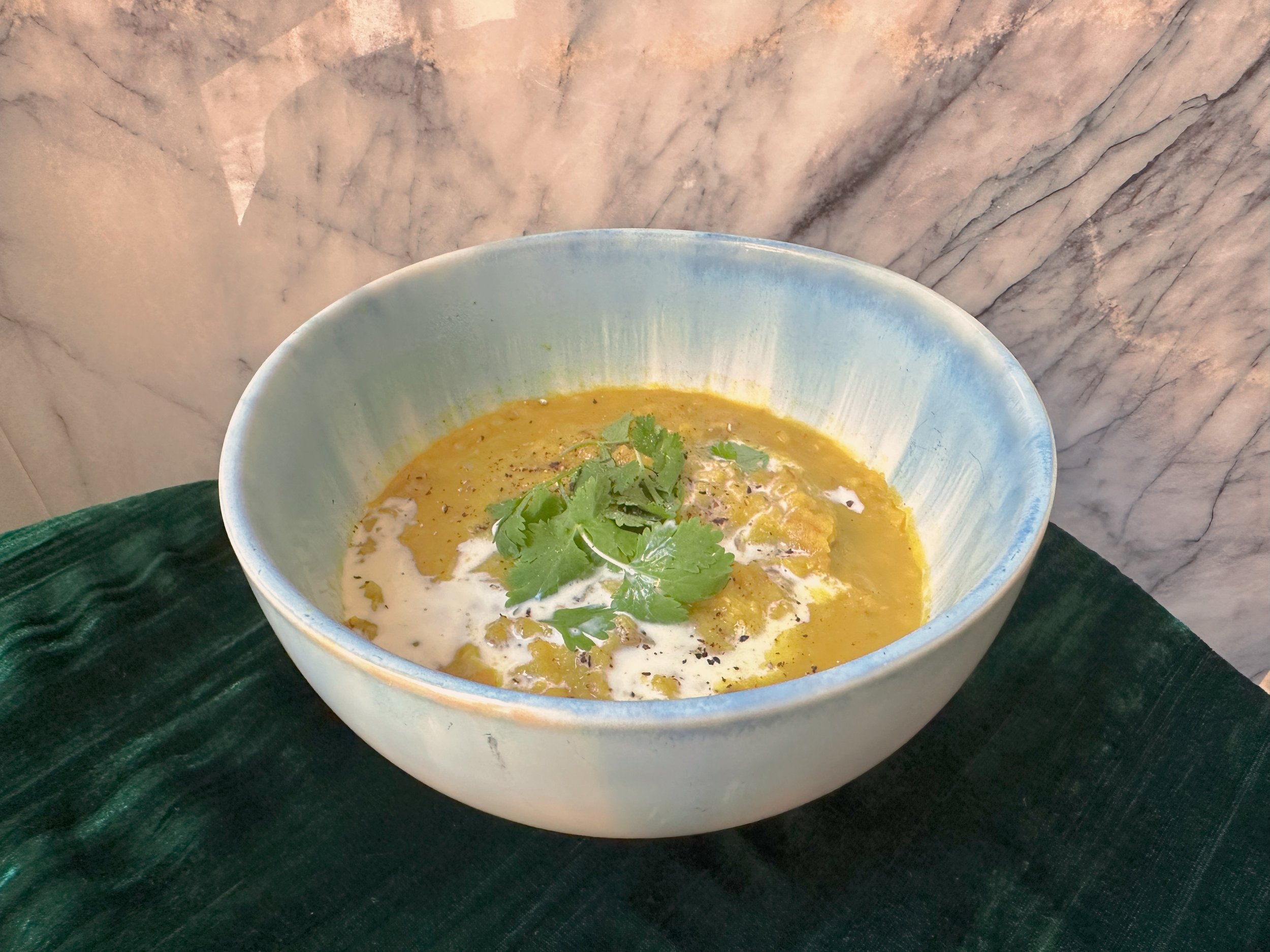I love the term wildcrafting, don't you? It's so earthy and free. It means to harvest produce that grows wild, be it for food, medicine, or beauty. Wildcrafting is going into the wild and taking what is naturally available. There’s something so gorgeously real, primitive and abundant about getting what you need from the earth. There’s no exchange of paper money, or disconnectedly swiping a piece of plastic card through a machine.
What you need is just there waiting for you in the sun, freely available and ready for the taking.
Last year I planted some mustard lettuce in my vegie bed. It fed me well and eventually it’s life circle completed, I let it go to seed, it seeded. Everywhere. And then it died.
This year I have mustard lettuce growing up through the lawn and in cracks of my brick paving, It’s adorable and tasty and full natural goodness. And so so convenient too. I love pulling lettuce out of my lawn, giving it a wash and putting it in my lunch.


I have another weed growing ambitiously all over, and I had a sneaking suspicion was the medicinal dandelion species we use in herbal medicine as a liver cleanser and digestive tonic, but couldn’t be sure.
I looked it up and although my weed and the medicinal dandelion had very similar leaves and flowers, their sizes varied hugely. This was definitely a different plant.

The Taraxacum officinalis (botanical speak for Dandelion) seems to hang out low to the ground, whereas my ‘dandelions’ were towering up to over a meter high.
I had get to the bottom of this.
I pulled off a baby leaf of my mystery weed and gave it a little chew. Hmmm, a little spiky around the edges, slightly bitter but definatley palatable. Tastes like healthy greens, not poison. This was a good start.
So here comes the part where most would get on google, but I decided to meditate on my weeds first, to see what my intuition could tell me. I had a guided meditation waiting on my computer specifically for connecting with nature and this was the perfect time to use it.
I asked the plant what it could do for me.
Sitting in the garden, sun flowing over my face, headphones in my ear’s and computer by my side. I clear my chakras under the guidance of the beautiful Karina Ladet. I put my hands around a particular healthy specimen of this mystery ‘dandelion’ and felt a cleansing tingling feeling throughout my body. My blood felt clean flowing and light filled. My mouth moved towards a leaf and made a chewing motion, my bodies way of showing me it’s ok to eat this plant, and if fact I should eat it. I sat with my hands on the leaf for a little longer, I then decided to chew off a bit of leaf as if were an ape in the jungle, tearing the end of the leaf with my teeth, straight from the plant. It was a wild moment of connection with my inner animal, followed by a self-directed laugh at my gorilla-like behavior.

Giggly and amused, my guided meditation ends leaving me with a giant warm and open heart. I got the message that this plant is super healthy and definitely edible but the scientist in me wants some solid proof. Inside I identified my mystery weed as the Sow Thistle aka Sochus oleraceus, thanks to the wonderful guide to Edible Weeds and Foraging in Perth by Charles Otway (see reference below). Some sources report that this baby has a whopping 1500mg of calcium per 100g and 45mg of iron. It’s also high in potassium, phosphorus, magnesium and a good source of vitamin C. Not to mention the phytochemicals the flavones, stilbenes, polyphenols and glycosides that exhibit anti-inflammatory, anti-tumour and all round good stuff properties.
Charles Otway thinks Sow Thistle tastes better when it’s still quite young, before it shoots up and flowers. I tried a mature flowered sow thistle though and I thought it was still good.
It’s very name ‘oleraceus’ is latin for good eating.

In short, you can safely pick (wildcraft) the leaves from these plants and nutritiously mix them through your salad, through your scrambled eggs, put on your pizza, use absolutely anywhere you use greens FOR FREE!
Traditionally more mature plants are boiled or steamed, but young leaves are good raw. I do recommend mixing the leaves up with other greens, rather then eating a bowl of sow thistle all by itself, simply because like all things, you can have too much.
Wild Plant Medicine
A New Zealender by the name of Mawalagedera (2009) wrote a thesis about the antioxidant value of this plant, and makes a point that the a particular New Zealand Maori population has less incidence of colorectal cancer dispite being in a very high risk group for the disease. She writes that sow thistle is a staple in the diet along with sweet potatoes, silverbeet and watercress. Perhaps these foods are offering the protective factor?
She also writes the more mature plants have a higher antioxidant value.
A 2013 study reports sow thistle is may be an effective option for treating Diabetes because the high antioxidant value protects the liver, kidneys and blood plasma from damage caused by high blood sugar.
Wildcraft away. I know what’s going in my salad.

SENSIBLE SALLY SAYS: Make sure you wildcraft from places that you know havn’t been sprayed or wee’d on. And always wash wash wash.

References:
Mofor Teugwa1*, Pascaline Chouadeu Mejiato1, Denis Zofou3, Bruno Tugnoua Tchinda1 and Fabrice Fekam Boyom2 BMC Complimentary and Alternative Medicine 2013,Antioxidant and antidiabetic profiles of two African medicinal plants: Picralima nitida (Apocynaceae) and Sonchus oleraceus (Asteraceae) 2013, 13:175 doi:10.1186/1472-6882-13-175
Sundara Mudiyanselage Maheshini Rangika Mawalagedera 2014, Antioxidant Activities of Sonchus oleraceus L.
Otway, Charles (undated) Edible Weeds, Common Plants and Foraging Around Perth, www.terraperma.com.au
Karina Ladet www.karinaladet.com





































For the sake of better health, I want you to think seriously and honestly about what habits are impacting negatively on your health and what can you can do to avoid those triggers.